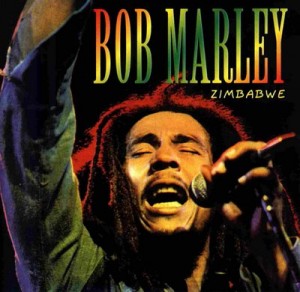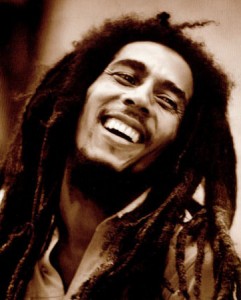Bob Marley documentary let down by its eurocentrism
- April 29th, 2012
- By agentofchange
- Write comment
 I went to see ‘Marley’, the new and highly-publicised documentary about Robert Nesta Marley, at the Rio cinema in the heart of gentrified Dalston. While I enjoyed my green tea and organic chocolate bar (definitely a step up from pepsi and popcorn!), I found that being surrounded by trendy middle-class types only added to my sense of fear that the film was going to be annoyingly eurocentric and patronising.
I went to see ‘Marley’, the new and highly-publicised documentary about Robert Nesta Marley, at the Rio cinema in the heart of gentrified Dalston. While I enjoyed my green tea and organic chocolate bar (definitely a step up from pepsi and popcorn!), I found that being surrounded by trendy middle-class types only added to my sense of fear that the film was going to be annoyingly eurocentric and patronising.
But let’s start with the good parts. Doing justice to the legacy of Bob Marley in the space of two hours and 24 minutes is an impossible task. All things considered, the people behind the film did a pretty decent job. The archive and interview footage is nothing short of incredible. The production team must have gone to extraordinary lengths to get the level of access they got. The interviews with Rita Marley, Bunny Wailer, Lee Scratch Perry, Danny Sims and other important figures in Bob’s life are brilliant, and do a lot to explain how this giant of a man came to be who he was. For any fan of Bob Marley, the film is worth watching for the footage alone.
Unfortunately, the film is let down (as I knew it would be) by its eurocentric perspective. Let’s face it, the first feature-length documentary on Bob Marley should have been directed by somebody else. Kevin Macdonald is perfectly competent as a film director, but he is a western white liberal. The story of Bob Marley is the story of black suffering and strength inna Babylon; the story a great revolutionary activist; the story of a people stripped of their freedom, languages, religions and traditions, building a voice and a collective identity. In short, it is not a story that Kevin Macdonald is qualified to tell.
Bob was Africa-oriented. He considered that Africa represented the future for his people. And yet Africa is presented in the film as a continent of dictators and basketcase governments. The film gets a cheap laugh when Marley’s first visit to Africa – to give a concert in Gabon – is somewhat marred when the band realise that Gabon is “a dictatorship”. We see a picture of Gabon’s then president, Omar Bongo Ondimba, wearing a suit and looking slightly severe. Our collective prejudice requires no further information to confirm that this rarely-mentioned West African nation is yet another hopeless failure, its natural wealth squandered by incompetent, malevolent kleptocrats. This shallow treatment serves to strengthen the near-universal colonial prejudice that African people are not capable of governing themselves. No mention of the devastating impact of French colonialism; no mention of the oppressive neocolonial relations that sustain such a “dictatorship”. It all comes down to: Europeans are civilised; Africans are barbarians. It’s the narrative of the White Man’s Burden.
One of the most poignant moments of Bob Marley’s career was his performance at the Zimbabwe Independence celebrations in 1980, to which he was invited on the strength of his beautiful song, Zimbabwe, which became an anthem of the liberation movement (“Every man got the right to decide his own destiny / And in this judgement there is no partiality / So arm in arms, with arms, we’ll fight this little struggle / Cos that’s the only way we can overcome our little trouble.”). Covering this event, Macdonald can’t help but take a pop at the leader of Zimbabwe’s hard-fought liberation struggle, Robert Gabriel Mugabe. There are long, drawn-out shots of posters showing Mugabe’s face, the obvious subtext being: Zimbabwe is a crazy African dictatorship, because only in a crazy African dictatorship would you find pictures of the Prime Minister on a poster. Apparently it is too far a stretch of the imagination to think that people would ever willingly display affection and respect for a man who personified their decades-long fight against apartheid and white supremacy.
Mugabe is considered by millions of Africans as one of the great heroes of the African cause, but that didn’t stop the trendy liberals of Dalston from booing at the footage of him making a speech. Tellingly, they were quiet just a few seconds earlier during the footage of Ian Smith – the apartheid fascist Prime Minister of ‘Rhodesia’ – making a speech saying that black majority rule would not be allowed “even in a thousand years”. Bob Marley must be turning in his grave.
Incidentally, London now has a statue of well-known state terrorist Ronald Reagan. That’s the type of hero-worship us civilised westerners prefer.
Perhaps unsurprisingly – given that he is one of the film’s producers – Island Records founder Chris Blackwell is positively portrayed in the film. He is shown as being very sensible and wise; the voice of reason. When one of Bob’s former band members claims that the doctors wanted to amputate Bob’s leg in order to treat the melanoma that had developed in his foot, Blackwell sets straight this slightly outlandish claim (the doctors only wanted to amputate a toe). The comedic timing of this scene confirms Blackwell’s role as the wise old white man. We hear about Blackwell the visionary businessman who knew just the right polish to add to the Wailers’ sound to make it acceptable to audiences in Europe. Very little is made of the fact that Blackwell used his colour and class privilege to build a fantastically lucrative career off the back of black culture. Blackwell’s sponsoring of the Wailers’ first album is seen as an act of great benevolence, but the film-makers choose not to explore the fact that Blackwell only had the money in the first place because he comes from a wealthy white family that profited from slave labour. Perhaps such difficult sociological issues will be addressed in the sequel?!
I also feel the portrayal of black Jamaicans in the film is somewhat one-sided and patronising. A few of the interviews don’t go past the level of showing ‘cool’, ‘colourful’, charismatic people who smoke a lot of high-grade ganja. I don’t think it’s done intentionally, but a middle-class white western audience is left with its prejudices intact. A different film-maker might have taken the perfect opportunity to highlight the deep understanding and experience of black Jamaicans and, in so doing, shatter some prejudices.
When you show certain images and footage without giving proper historical context, it strengthens prejudice. We see the leading politicians of the time, Michael Manley and Edward Seaga, both of whom are (basically) white. Then we see the black ‘enforcers’ using extreme violence against each other. No mention of the real issues within Jamaican politics. No mention of interesting facts like how the CIA trained and armed the JLP gangs. So our existing prejudices (that white people are ‘thinkers’ and black people are inherently violent) are confirmed. This sums up my overwhelming feeling about the film: that it serves to reinforce rather than challenge prejudice.
Overall I feel the film represents a missed opportunity and fails to present Bob as the deeply revolutionary figure that he was. I hope some time soon a solidly afrocentric director and producer will step forward and tell this particular story from a different perspective – for the enjoyment and inspiration of the downpressed masses of the world, rather than western university students. In the meantime, go see the film in spite of its faults – the footage makes it a very worthwhile experience.

